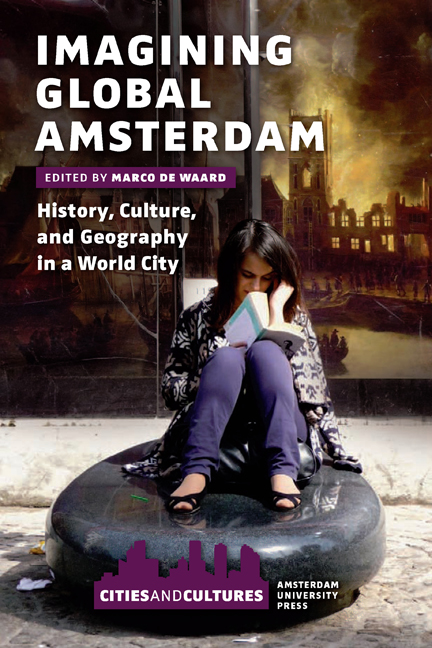8 - Rembrandt on Screen: Art Cinema, Cultural Heritage, and the Museumization of Urban Space
Published online by Cambridge University Press: 19 January 2021
Summary
‘Rembrandt 400’ as Global Mega-Event
In 2006, Amsterdam and Leiden celebrated Rembrandt Year. For both cities the quatercentenary of Rembrandt's birth formed a major chance to showcase the ‘Golden Age’ painter and his orbit – and, in so doing, to shore up their status as centres for cultural heritage and destinations for cultural tourism. Amsterdam especially stood in dire need of an opportunity like this. If in previous decades its position in the European market for tourism and travel had weakened in the face of sharply increased inter-city competition, by the mid-1990s its reputation as a ‘theme park’ devoted to ‘sex and drugs’ seemed difficult to turn into a more positive city image or ‘brand’ (Dahles 1998; Nijman 1999; Kavaratzis and Ashworth 2006). What is more, the city's ambition to fight its way back into the race for dominance of Europe's geography of cultural capitals was complicated by the protracted – and costfully prolonged – closure for renovation purposes of both the Stedelijk Museum and large parts of the Rijksmuseum from 2003. In short, the city could do with a boost. The Rembrandt Year that crystallized was a truly global event, staging ‘local’ heritage in thoroughly place-bound ways while catering to national and, even more so, international publics. It squarely qualifies as one of those ‘mega-events’ which sociologist John Urry, following Maurice Roche, has proposed are characteristic of globalized cultural economies: events that form ‘spatio-temporal moments of global condensation, involving the peculiarly intense “localization” of … global events’ in cities that present both themselves and the event which they host as irreplaceably ‘unique’ (Urry 2002, 154). In this sense, Rembrandt Year was arguably as much a global mega-event as any World Expo or Olympic Games.
Before considering the ‘Rembrandt 400’ project in more detail, it is worth giving some more thought to the special nexus between cultural heritage, place, and global cultural flow in the context of Amsterdam and the Netherlands since the early 2000s. Two points are in order. First, it has justly been said that for a variety of reasons, Dutch cultural tourism is uncommonly dependent on early-modern or ‘Golden Age’ heritage.
- Type
- Chapter
- Information
- Imagining Global AmsterdamHistory, Culture, and Geography in a World City, pp. 143 - 168Publisher: Amsterdam University PressPrint publication year: 2012



